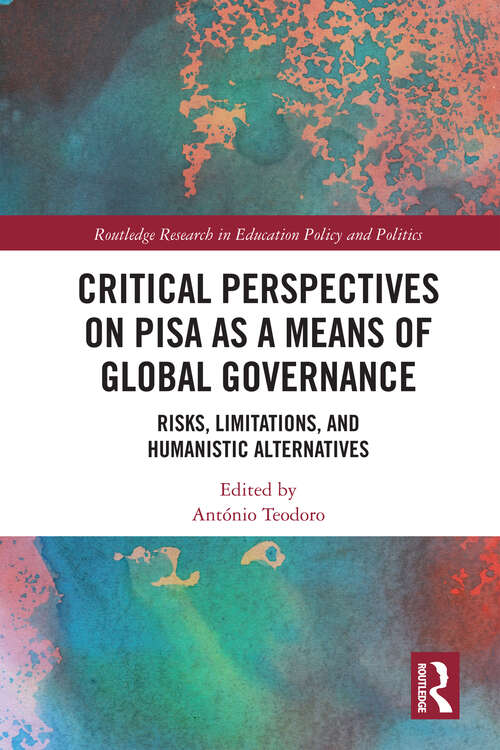Critical Perspectives on PISA as a Means of Global Governance: Risks, Limitations, and Humanistic Alternatives (Routledge Research in Education Policy and Politics)
By:
Sign Up Now!
Already a Member? Log In
You must be logged into Bookshare to access this title.
Learn about membership options,
or view our freely available titles.
- Synopsis
- This volume offers a critical examination of the Programme for International Students Assessment (PISA), focusing on its origins and implementation, relationship to other international large-scale assessments, and its impacts on educational policy and reform at national and cross-national levels. Using empirical data gathered from a research project carried out by the CeiED at Lusophone University, Lisbon, the text highlights connections between PISA and emergent issues including the international circulation of big science, expertise, and policy, and identifies its conceptual and methodological limits as a global governance project. The volume ultimately provides a novel framework for understanding how OECD priorities are manifested through a regulatory instrument based in Human and Knowledge Capital Theory, and so makes a powerful case to search for new humanistic approaches. This text will benefit researchers, academics, and educators with an interest in education policy and politics, international and comparative education, and the sociology of education more broadly. Those interested in the history of education will also benefit from this volume.
- Copyright:
- 2022
Book Details
- Book Quality:
- Publisher Quality
- Book Size:
- 202 Pages
- ISBN-13:
- 9781000568165
- Related ISBNs:
- 9781032185811, 9781003255215, 9781032185774
- Publisher:
- Taylor and Francis
- Date of Addition:
- 03/25/22
- Copyrighted By:
- selection and editorial matter, António Teodoro
- Adult content:
- No
- Language:
- English
- Has Image Descriptions:
- No
- Categories:
- Nonfiction, Education, Politics and Government
- Submitted By:
- Bookshare Staff
- Usage Restrictions:
- This is a copyrighted book.
- Edited by:
- António Teodoro
